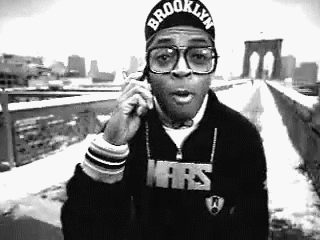By The Landlord
"Whenever I walk out on a stage, I'm begging for affection." – Eartha Kitt
"If you don't ask, you don't get." – Stevie Wonder
"Go to you bosom: Knock there, and ask your heart what it doth know." - William Shakespeare, Measure for Measure
"Ask not what you can do for your country. Ask what's for lunch." – Orson Welles
The squeaky wheel gets the grease. This has always been evident to me in every context of life. From crying babies to that pushy, over-confident work colleague who constantly plots their next move, to the insistent pet who knows how to play you like an instrument. We're built to talk, to ask, to question, to collaborate, and hopefully, to do this mutually, more than just take. Some overdo it, others don't do it enough. And perhaps it's a particularly British thing, perhaps with politeness, or simply not wanting to make a fuss or cause embarrassment, or shyness, even lack of confidence, that can stop people asking for information or things they need.
But not so in the world of song. Songs are a megaphone for our feelings. They are a release for repressed yearnings – for people, situations and sometimes a new self. And this is where the language of asking can hit true hyperbole, where the words begging and pleading often come into play. They are already habitually used to exaggerated effect in common phrases. I beg your pardon? I beg your forgiveness. No I don't, I'm just saying that to get myself into something or get out of a situation.
And some singers are even begging us for mercy. Mercy? Surely that, arguably, is only really necessary when, for example, the likes of Al Pacino's Tony 'Scarface' Montana, or some other scary person is pointing a gun in your face, or your about to be sentenced by a judge, where you might plead ignorance or insanity, or plead not guilty. Meanwhile there's the Welsh singer Duffy begging for it, though if you listen closely, as I've written elsewhere, I'm still sure she's actually begging for birdseed:
Begging, pleading, imploring can be very, very powerful in song. Twenty years ago I was lucky enough to catch the great Al Green doing a special TV recording in a studio in Glasgow, where during one song, he was rolling around on the floor to ask for the love of of the song's female subject, singing, growling and screaming with extraordinary power.
Artists tend to exaggerate and dramatise by the nature of the format, and perhaps it is a reflection of the needs of any performing artist to struggle with the industry, and become successful. It is no surprise that Eartha Kitt admits her performing needs, no indeed Stevie Wonder, who must have experienced extraordinary struggles, especially as a young, black, disabled artist in the 60s.
But in that decade, there was perhaps no greater performer who knew how to plead and beg for effect than James Brown. The cape routine with MC Danny Ray, where Brown keeps falling to his knees with exhaustion, absolutely drove audiences wild, and Mick Jagger, who saw this first hand at a concert in 1964 where the Stones shared the bill, said screaming girls wanted so much to help him and just could not help falling for that seductive supplication:
Actual begging, as in sitting on the street asking for money, or food, is something we all witness most days in most cities around the world, and is tragically as prevalent as ever, with homelessness on the rise. Ironically, the begging connection from Brown to Jagger came with Marianne Faithfull, here singing a song about Goodge Street near Soho, the very area where, after splitting up the Rolling Stone frontman in 1970, she subsequently spent two years living on the streets, heavily troubled by heartbreak, heroin addiction and anorexia nervosa.
So street begging is certainly very much part of this week's asking theme, but of course there are many forms of desperate pleas for other things, from opportunities to exposure. Radiohead's guitarist Jonny Greenwood, such an integral part of their sound, explains how much he had to ask for his role in the early days: "The rest of the band were basically friends, So it was me following them around and begging them to let me be in their band for two or three years. And they finally let me in on the harmonica, actually, and then the keyboards, and finally the guitar."
People find themselves pleading more than they realise. She's Gotta Have It was Spike Lee's first film, with a strong female role who had three men in her life, the arrogant macho man, the handsome, sincere man, and the funny guy. Lee, who is now directing a full-length TV series based on this and soon to be released, played the original latter role, with his immortal line, "Please, baby, baby, please!".
Please, baby baby please. Spike Lee in She's Gotta Have It.
But why do we ask for things so much? It is how we are made. "What makes us human, I think, is an ability to ask questions, a consequence of our sophisticated spoken language," says the conservationist and ape expert Jane Goodall. But it is not merely humans that can do this. Pets are extraordinarily evolved to ask for food from us. Dogs have their many tricks, and one of my two cats, for example, has an amazing array of routines, staring from purring and licking his lips over your face in the bed, clambering on things and knocking them over, yowling, swiping feet and other body parts with paws and sometimes claws, and, very cleverly, drawing the bedroom curtains, dragging them open with his teeth to let the light in.
Cat begging. PIctured is not necessarily my cat.
But asking can come in many other forms than basic needs. A whole crowd has now gathered in the bar to offer up more examples. "An expert knows all the answers - if you ask the right questions." says the arch and ever so clever Levi Strauss. Now the author H.P. Lovecraft is in the house, reading aloud a quote: "I never ask a man what his business is, for it never interests me. What I ask him about are his thoughts and dreams." And here's fellow author Charles Dickens, who proclaims, reading from Bleak House: "I only ask to be free. The butterflies are free."
Now another writer, a playwright, has joined them at the same table, with the writer's role in mind: "The job is to ask questions – it always was-and to ask them as inexorably as I can. And to face the absence of precise answers with a certain humility." says Arthur Miller.
Eartha Kitt. Demanding.
The sculptor Antony Gormley, famous for Angel of the North and figures standing on beaches, enlarges on the role of asking questions: "Due to the failure of politics, which has become a process of middle-management, art has become one of the last open spaces to question core beliefs and to design a viable future. Art becomes an open space where we can ask fundamental questions about ourselves."
The author Philip K Dick, who is about as prophetic a sci-fi visionary as you can get, was as ever on the money when he said: "We live in a society in which spurious realities are manufactured by the media, by governments, by big corporations, by religious groups, political groups. I ask, in my writing, 'What is real?' Because unceasingly we are bombarded with pseudo realities manufactured by very sophisticated people using very sophisticated electronic mechanisms."
Jonny Greenwood. Pleaded to play guitar in Radiohead.
Dead geniuses do tend to turn up in our Bar often. Here's Kurt Cobain, who jokes, very drily: "If you ever need anything please don't hesitate to ask someone else first."
"Well, amigo," says another, Miguel de Cervantes, ordering a bottle of Chianti, "Never stand begging for that which you have the power to earn!"
Now then, Eleanor Roosevelt agrees with Cervantes: "It is not fair to ask of others what you are not willing to do yourself," she says, rather properly.
And we're left with just two more Song Bar guests who demand the very best of themselves and others, in very different ways. "Whenever I'm confused about something, I ask God to reveal the answers to my questions, and he does.", says Beyonce Knowles, appealing to as many people as possible. But some questions are best not asked at all. A beaming Louis Armstrong has the final word: "If you have to ask what jazz is, you'll never know." and pulls out his trumpet. What a finale.
And so then, asking you questions and getting answers in the form of song, and taking no doubt taking a very welcoming approach behind the bar this week, we welcome returning guru angryIrishPunk! Put forward your songs that ask, beg, plead, or show any aspect of such a theme in comments below, in time for last orders on Monday (11pm UK time) for playlists published next Wednesday. It's not asking too much, I hope.
New to comment? It is quick and easy. You just need to login to Disqus once. All is explained in About/FAQs ...
Fancy a turn behind the pumps at The Song Bar? Care to choose a playlist from songs nominated and write something about it? Then feel free to contact The Song Bar here, or try the usual email address.





